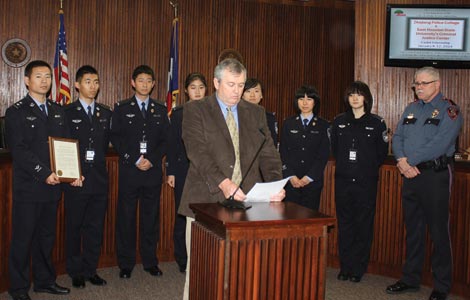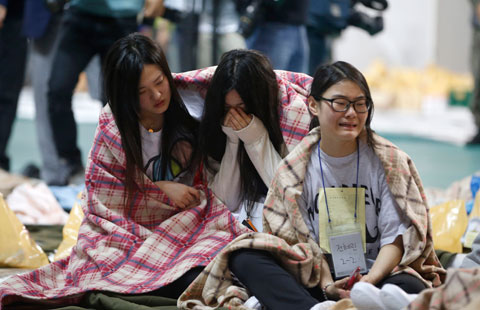Rumormonger ruling seen as lesson for public
Updated: 2014-04-18 07:12
By Cao Yin (China Daily)
|
||||||||
The nation's first judgment against a defendant accused of spreading fake rumors online has been hailed by judges and experts, who call for netizens to learn from the case.
Qin Zhihui, known online as Qin Huohuo, was found guilty of defamation and causing disturbances by Beijing Chaoyang District People's Court on Thursday and sentenced to three years.
Qin, who reportedly defamed celebrities and the government, said he will not appeal the ruling. He is the first person in China to be tried and sentenced for online defamation since authorities launched a national crackdown last year against online rumormongering and after China's top court issued a judicial interpretation in September to tackle online libel.
"The public should learn from this case," said Hua Zhengming, vice-president of the Chaoyang court.
Criminal activity on the Internet has been growing rapidly over the past few years, and much involves the spreading of rumors, said Hua, who added that there are organizations whose sole purpose is to create and disseminate rumors for profit.
"The Internet is a public space that needs order and is protected by rules," Hua said. "People who disrupt order on the Internet and attack others should be punished."
Qin, 30, a native of Hunan province, stood accused of fabricating and spreading rumors via Sina Weibo, China's largest micro-blogging platform, to damage the reputation of celebrities and the Chinese government, the court said.
On April 11, he pleaded guilty to fabricating stories from 2011 to 2013 to attract public attention.
Qin said in a posting in August 2011 that the government had compensated the family of a foreign passenger who died in the high-speed train disaster in Wenzhou, Zhejiang province, more than 200 million yuan ($32.7 million).
The posting was reposted about 12,000 times and attracted more than 3,300 comments within two hours. The government later said the information was not true.
Qin also libeled four celebrities, the verdict said.
Under the top court's judicial interpretation, Internet users who create and spread false information that is defamatory or harmful to national interests can be imprisoned for up to three years if the posts are viewed 5,000 times or forwarded 500 times.
Cheng Manli, a media professor at Peking University, said the nationwide crackdown on rumormongers can help the online environment.
"I believe that false online information has been reduced after the campaign began and that many sources of rumors have come to light," Cheng said.
Wu Ming'an, a law professor at China University of Political Science and Law, said defamation cases should be handled by civil courts "because individuals who have been attacked are the ones who can decide whether their reputation has been damaged".
caoyin@chinadaily.com.cn
(China Daily 04/18/2014 page5)

 Runners and their 4-legged friends race in New York
Runners and their 4-legged friends race in New York
 Top 10 Chinese Internet firms eyeing IPOs in US
Top 10 Chinese Internet firms eyeing IPOs in US
 Chinese cop cadets learn about US police work
Chinese cop cadets learn about US police work
 In Boston, warming up for, remembering marathon day
In Boston, warming up for, remembering marathon day
 Families of missing passengers face agonising wait
Families of missing passengers face agonising wait
 Couple leave the city for 'Self-sufficiency Lab'in mountains
Couple leave the city for 'Self-sufficiency Lab'in mountains
 Turning waste into something valuable
Turning waste into something valuable
 Dignitaries put their foot down
Dignitaries put their foot down
Most Viewed
Editor's Picks

|

|

|

|

|

|
Today's Top News
Texas seizes polygamist group's secluded ranch
4th US Navy official charged in bribery scheme
Colombian novelist Garcia Marquez dies age 87
Chinese cop cadets learn about US police work
Economic growth drops to 7.4%
Pulitzers spotlight Snowden
In Boston, warming up for, remembering marathon day
MD governor hopeful woos the local Asian American vote
US Weekly

|

|







